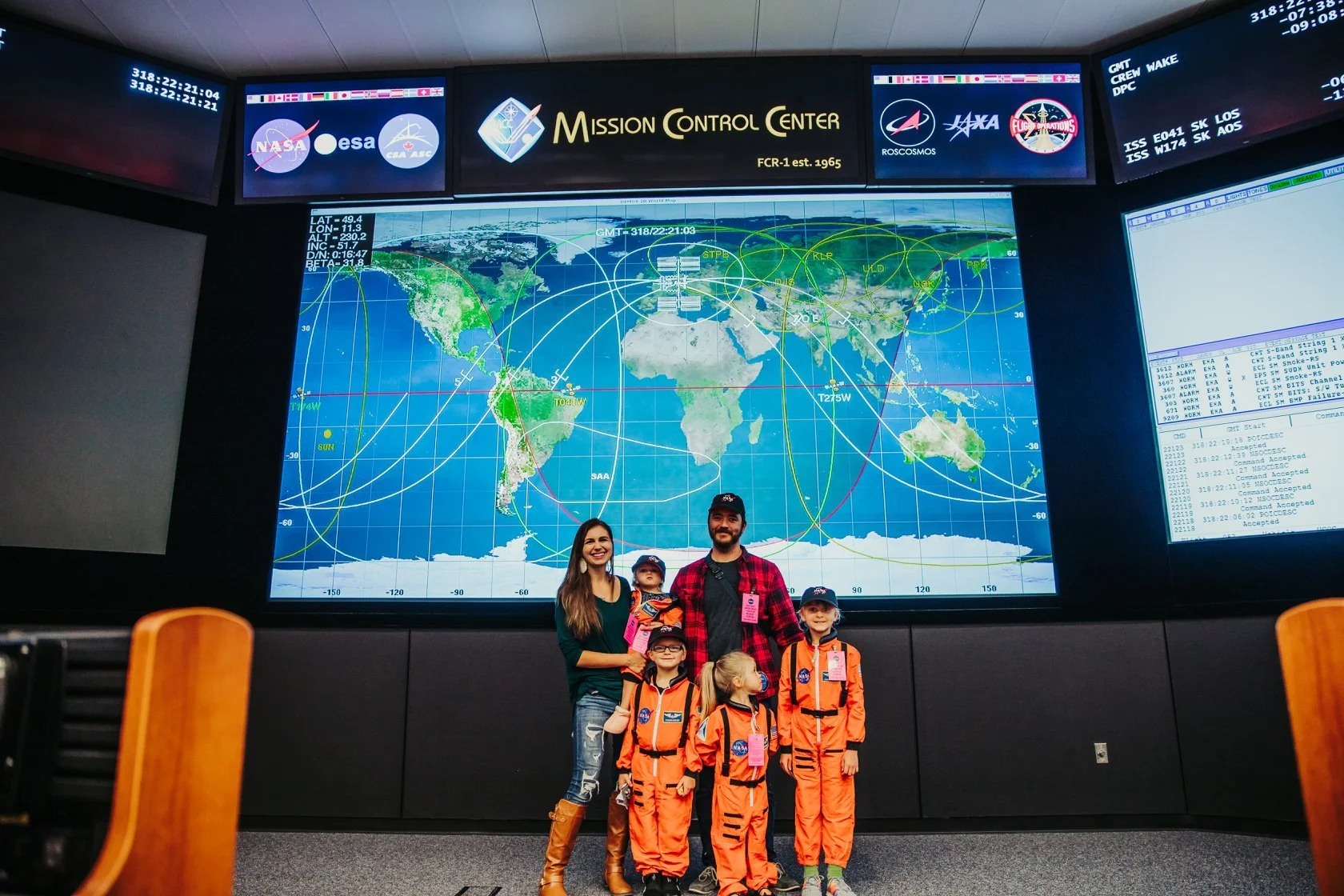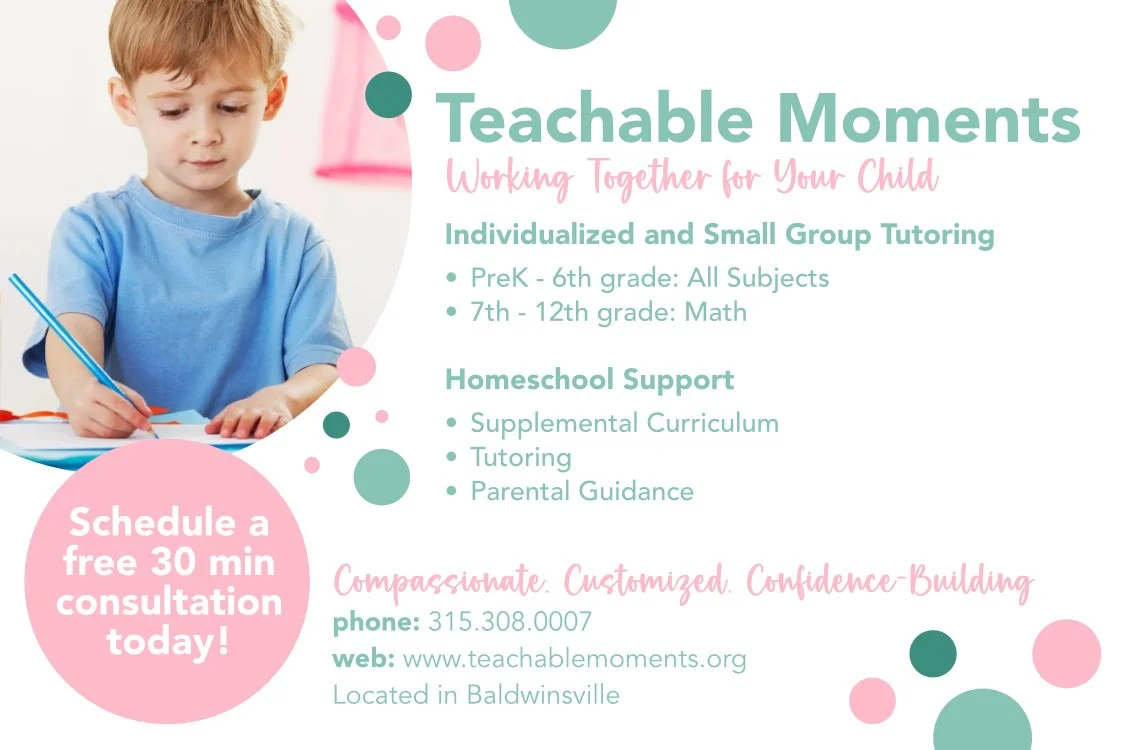A Totally Surprising Look Inside CNY Homeschools
Spoiler: classes can include snorkeling and the glitzy prom outshines many high schools
By Allison Kenien
Sometimes the best lessons happen out in the real world. | Photo by Cassie Bailey
This fall, most kids will return to crowded classrooms, hallway drama, and packed schedules. Others will embark on a totally different school year where a typical day might include exploring nature trails, visiting museums, and tackling engineering challenges. These fun, adventurous days are attracting more and more families, causing homeschool rates to surge across the country.
In New York, our area has one of the most robust homeschool communities with growth in Syracuse and Utica outpacing Albany and Buffalo.
As the movement grows, old stereotypes of eccentricity and reclusion are breaking down. Today, the CNY homeschool community is a vibrant patchwork of cooperatives (co-ops), enrichment programs, shared resources, and an overarching enthusiasm for creative learning.
To uncover the realities of homeschool, we dug into the real-life experiences of local families. Here’s what we found to be surprising, and quite frankly, totally awesome.
The Reasons Are Incredibly Relatable
Families choose homeschool for a whole slew of reasons that are (mostly) super relatable, hitting on widespread
frustrations that non-homeschooling families feel as well. The top reasons from the National Center for Education
Statistics: concerns about the school environment, preference for moral instruction, dissatisfaction with academics at traditional schools, and desire for emphasis on family life.
What does that actually look like in the real world?
Here are quotes from homeschool moms:
““I was a teacher before I had kids, and I thought learning could be more fun… I wanted my kids to have choices, hands-on experience, time for play, adventure, and risk-taking.”
“I was heavily bullied in school. There were a bunch of girls who made this website, cassiehaters.blogspot.com…My mom and dad immediately pulled me from school and started homeschooling me…My mental health got better, I had so many friends, joined so many activities, I interned, I started college at 16.”
“The thought of sending [my daughter] to kindergarten 40 hours per week and breaking up our family made me feel really sad. My husband suggested homeschool… I was looking at the kindergarten schedule of [math and language arts]... I realized it was going to take me longer to get three kids out the door than it would to teach the same amount of content at home.”
Teacher Meghan Chaloux reading for Home Sweet Homeschool 315. | Photo by Michelle Mustac
You Can Hire Professional Teachers
Typically, homeschool parents teach their own kids, but many lighten the workload by joining a co-op. These are groups that encourage parents to share resources or take turns teaching academic subjects.
Home Sweet Homeschool 315, a co-op lead by Michelle Mustac, is slightly different. They use a hybrid approach that incorporates the structure of a traditional classroom with a professional teacher for a portion of the learning.
Their transition to a hybrid program happened somewhat unintentionally.
“We had a shortage of parent volunteers, so we ended up hiring a tutor to do science experiments for the kids, and it was a big hit,” Mustac said.
Suddenly, the idea of having a professional teacher became very appealing to Mustac’s group.
“A lot of co-ops require you to volunteer [to teach], but it can yield a lot of stress,” Mustac said, citing the pressures of caring for younger siblings, having a job, or dealing with unexpected illness.
They scheduled weekly sessions with Meghan Chaloux, a teacher and owner of Teachable Moments, a tutoring center in Baldwinsville.
Chaloux provides science classes and other types of support for the group, which eases the demand on parents.
Groups can use professional teachers or parent volunteers and still qualify as homeschool as long as the time is limited, according to New York State regulations. If the majority of time started to fall into group learning, the state would view it as a private school instead of a co-op.
Kristy Mallory’s daughter with one of her favorite chickens. | Photo by Kristy Mallory
Homeschool Can Work For Kids With Special Needs
The hybrid co-op was a perfect fit for Kristy Mallory’s youngest child who needs sensory and developmental support.
Mallory has homeschooled five children over the past 20 years, crafting unique paths for each child based on interests and learning styles.
“The differences between 2005 and 2025 are huge inthat there are so many options for every family,” she said. “No matter where you fall in your educational beliefs, your religious beliefs, or your family values, there’s a group in the area for everyone.”
Mallory’s older children had participated in traditional co-ops that focused on extracurriculars, field trips, and other activities, but those programs weren’t a fit for her youngest daughter. They tried a private school, but there were too many loud noises, bright lights, and distractions. Finally, they discovered Home Sweet Homeschool 315. The blended approach combined just the right amount of structure and socialization in a less overwhelming space with about a dozen classmates.
At first, Mallory needed to sit directly behind her daughter to help her feel safe and stay regulated. As the weeks went on, she could sit across the room, and eventually, leave the room completely.
“It’s been a big, huge blessing for our family, so much so that we opened up our homestead to offer nature classes for the group,” Mallory said. “It’s been wonderful for [my daughter] to show her friends our chickens, trails, and waterfall… My girl who didn’t want to talk to anyone is now leading the group at our homestead.”
The Bailey family during the NASA backstage tour. | Photo by Cassie Bailey
The ‘Field Trips’ Can Feel Like Dream Vacations
While some homeschool parents want their kids to have small amounts of traditional classroom time, others, like Cassie Bailey, head in the opposite direction.
Initially, Bailey’s kids were enrolled in local co-ops, but that changed when her 5-year-old son collapsed from undiagnosed diabetes and celiac disease.
“We were sitting in the hospital and all we could think of were the things our kids hadn’t seen,” Bailey said. “I thought, ‘What’s holding us back? If he makes it through this, we will show him the world.”
When her son left the hospital, the family bought a used travel trailer, sold their possessions, and hit the road.
Of course, this changed the homeschool curriculum.
“We go wherever we want, and we wrap our education around that,” Bailey said.
Their days became packed with hands-on learning. Gym class meant parasailing, and marine biology came alive while snorkeling. They studied geology at the Grand Canyon and reenacted American history at national landmarks. One astronomy lesson even took them to Johnson Space Center, where their astronaut costumes earned them a private backstage tour from impressed NASA staff.
When the Bailey kids are not adventuring, they use textbooks and learning apps, but overall, their education looks very different from a typical classroom, and it’s even a departure from the standard homeschool setting. Nevertheless, this “roadschooling” method is growing in popularity with thousands of RV-traveling families across the country.
Teens travel from across the region to attend the prom. | Photo by Amanda German
Homeschool Prom Is Dazzling
One high school experience is universal: prom. Just as in traditional schools, this is an iconic right-of-passage for homeschoolers.
The local dance is organized by Amanda Gehman, a mom of three. Gehman attended her own homeschool prom as a student in 2008. Back then, it was about 50 kids dancing in a church fellowship hall. Now, the event has grown in numbers and extravagance. Last year brought in about 140 teens ages 16 and up.
“We get a wedding venue, a really big venue, and everything is catered,” Gehman said. “It’s a formal event with professional DJs and photographers. I really try to go above and beyond what the typical homeschooler would expect.
To plan the event, Gehman forms a committee of senior students. They choose themes, colors, and special songs. One particularly stunning year had a “Music of The Night” theme from the Phantom of the Opera. It was held at a water-side venue decorated with red roses, sheet music, and masks.
While the ambiance is impressive, the most notable aspect of homeschool prom is the genuine camaraderie, Gehman said. “A lot of the kids don’t know each other, but no one is a stranger… I had one kid who came with a friend and they knew nobody. They were sitting for 10 minutes until one of the local guys came over, introduced himself, and said, ‘Hey, let’s go. No sitting. No being bored. Join us out here where the fun is.’”
There Are Homeschool Sports Teams
Homeschool students are sometimes permitted to participate in public school extracurriculars — but never sports. This is a contentious point, especially in small districts that have trouble getting enough kids to form a team. There’s a bill in front of the state legislators demanding change, but in the meantime, homeschool families continue with their own solutions. Some kids join travel teams, while others play on dedicated homeschool teams that are led by parent volunteers.
Nathan Emmons, dad of four, manages the Port City Royals, an Oswego-based athletic program that offers varsity-level soccer, basketball, and volleyball.
“We put the effort in,” Emmons said. “It’s not a rec league… We practice four or five days a week, we travel as a group to schools we are playing against. We have a pretty rigorous schedule.”
The group plays against other homeschool teams and small Christian schools throughout the season, all the way to a championship game.
Some kids go on to play college-level sports, but Emmons said that’s not a goal for most kids.
“Our focus is to provide the opportunity to play and to learn lifelong skills… communication, teamwork, conflict resolution, and working together towards a goal,” he said.
Diplomas and Graduation Are Under Review
Homeschool families must meet state requirements by submitting curriculum plans, standardized test scores, and performance reports. Despite this oversight, the students do not receive any type of diploma, which makes college admission difficult.
Some districts will provide a letter or certificate stating that the student has completed an education that is substantially equivalent to the diploma requirements. Emmons said that the state legislature is reviewing whether districts should be required to provide these documents.
“To us, it’s an equity issue. If the state requires us to follow the regulations, a student should be rewarded with a letter of substantial equivalency,” he said.
While the students don’t get a diploma, some do participate in private graduation ceremonies organized by local families or non-profit groups. These events are separate from the public school graduations, although this standard was recently challenged by a homeschooler in Gloversville. In May, she gathered nearly 1,500 signatures and petitioned the district to let her join the commencement. She was denied since she had not completed all required components, which include 22 high school credits and Regents exams.
Despite the remaining challenges, homeschooling in CNY has grown exponentially. So, whether it’s a graduation ceremony or something else, families can usually find resources to build out their vision.
“There are so many opportunities for students,” Emmons said. “It’s not your grandma’s car from 30 years ago; it’s a souped up engine now. Students can get involved and connect socially. It’s a wonderful community… It’s not for everybody, but for my family, it’s been a blessing.”








